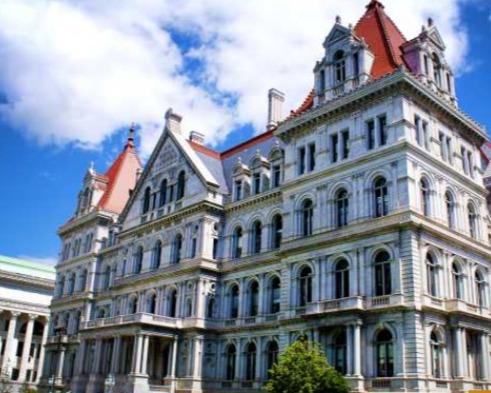ALBANY- As the year’s legislative session ground to a close, there was no deal on many important issues, but there was a surprise deal on the topic of a proposed state commission to study possible reparations to the descendants of African-American slaves in New York. A similar bill passed in 2020 in California, with the commission recently recommending payments of up to $1.2 million per impacted individual.
Senator James Sanders (D, Queens) who sponsored the bill said, “New York has an accounting to do. If we are ever to be the America for everybody, then we have to come to grips with America’s original sin- slavery.”
Slavery was legal in New York until 1827, and, according to the bill’s sponsors, New York remained tied into the southern based slave economy even after the practice was banned here at home. The proposed commission would contain appointees from the majority parties in each house of the legislature along with Governor Hochul.
The commission would be empowered to look at more than just the institution of slavery. The commission has been set with a broad mandate to look at the, “lingering negative effects of slavery and discrimination on living people of African descent.” The bill in New York is part of national push to provide restitution to African Americans as recently similar legislation has been introduced in Washington D.C.
The bill justification read, in part, “The consequences of slavery in New York State is not an echo of the past, but can still be observed in daily live. Systemic racism has cemented a legacy of generational poverty, and we still see today instances of voter suppression, housing discrimination, biased policing, food apartheid, and disproportionate rates of incarceration.” The commission created by this bill is tasked with addressing these, and other issues outlined in the legislation.
The measure was given final passage in the State Assembly on Thursday by a vote of 105-42, and passed on Friday in the State Senate along party lines. Many Republican lawmakers spoke about why they voted against the bill, expressing a variety of reservations including the fact that the legislation provided no appointments to the commission for Republicans who are in the minority in both the Senate and the Assembly.
The bill cleared the legislature with the support of a handful of Republicans, including a vote from Assemblyman Brian Maher (R, Walden) who represents portions of Orange, Ulster, and Sullivan Counties. Maher, in a speech on the Assembly floor, explained his vote in support of the bill.
“I am not black, but I have a perspective and I have a story,” said Maher. “I am the son of an amazing mother who, at the age of five came to the Bronx from Puerto Rico with my grandmother who really could barley speak English and still has a tough time.” Recalling his memory of his mother being mocked because of the way she looked and the way she talked as one of the first people of color living in Walden, Maher added, “The one thing I never forgot how angry that made me. And that anger was something that always overcame me, and that was my perspective.” He added, “My vote today isn’t specifically because I believe every specific thing here in this bill, but really it is an acknowledgement.”
Assemblywoman MaryJane Shimsky (D, Tarrytown), who has a Ph.D. in History, spoke in favor of the creation of the reparations commission. “Cultures and aspects thereof survive through generations. Black channel slavery created an unparalleled level of institutional dehumanization over multi-general periods of time. But just as monstrous was the metastasization of those attitudes into the white supremacy that has survived today. Even if our ancestors were not here for slavery, our ancestors were here for this. And many of our ancestors took part and benefited from it.”
Assembly Republican Floor Leader Andy Goodell said he was concerned that, “We’re opening a door that has been closed in New York State for almost 200 years.” In voting against the bill, Goodell expressed his support for equal opportunity and said the state should, “continue on that path rather than focus on reparations.”
The legislation now heads to Governor Kathy Hochul for her consideration.








